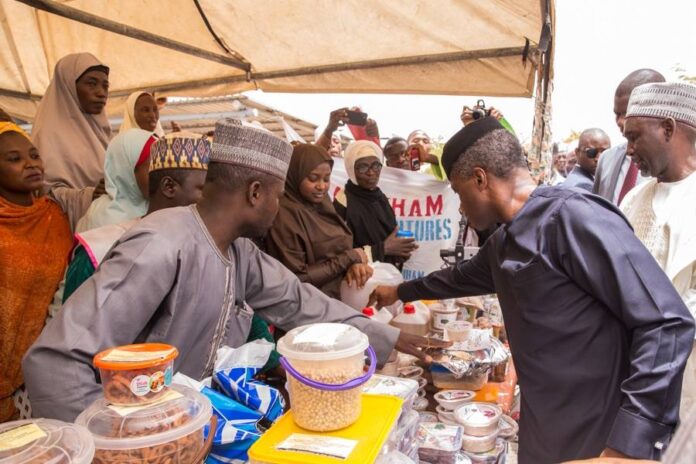CBN disburses N3tr to SMEs, female enterprises, households, farmers
By Jeph Ajobaju, Chief Copy Editor
Up to 12.5 million jobs have been created from the N3 trillion the Central Bank of Nigeria (CBN) has disbursed in interventions through financial institutions to lift the economy from the doldrums of Covid.
CBN Governor Godwin Emefiele, who made the disclosure, said loans were disbursed to households, Small and Medium Sized Enterprises (SMEs), female enterprises, and smallholder farmers to mitigate the effects of the pandemic.
He was speaking at the convocation of Ekiti State University (EKSU), Ado-Ekiti in a lecture titled “The role of Central Bank in managing economic downturns” which marked the 40th anniversary of the university.
Emefiele, represented by CBN Deputy Governor (Corporate Affairs) Edward Adamu, said N948 billion was disbursed to 4,478,381 smallholder farmers to raise food production.
Apart from encouraging farming, he added, the scheme has generated 12.5 million direct and indirect jobs for unemployed youths.
A total N368.79 billion was disbursed to 778,000 beneficiaries under the credit facility to help households and businesses that suffered losses in the pandemic, according to him.
He said 648,052 households and SME owners benefited from the policy.
__________________________________________________________________
Related articles:
CBN loans N29b to 31 firms for productivity and forex
Female enterprises get N203.31b CBN loan
CBN N13.92tr backup for power sector produces blackouts
__________________________________________________________________
Inadequate investment in non-oil sector
“As you all know, one of the major challenges facing the Nigerian economy is overreliance on revenues and foreign exchange earnings from the sale of crude oil, even though petrol represents just 10 per cent of our GDP,” Emefiele explained, per reporting by The Nation.
“Moreso, the non-oil sector, particularly agricultural and manufacturing sectors, which contribute about 30 and 13 per cent to our GDP, have been confronted with low investments, inadequate credit to the real sector and weak infrastructure.
“Furthermore, with an annual population growth rate of 2.8 per cent, it was important that all efforts were made available for Nigerians, particularly in sectors that had the potential to absorb youth.
“We were aware that if necessary support was given to households and business, productivity will rise and investment will flow into our economy.”
EKSU Vice Chancellor Edward Olanipekun, a professor, described the 40 years of the university as impactful, being a reliable training ground for future leaders.
He said EKSU has challenges as a human institution but no effort will be spared to keep the flag flying in its resolve to be a citadel of learning.













